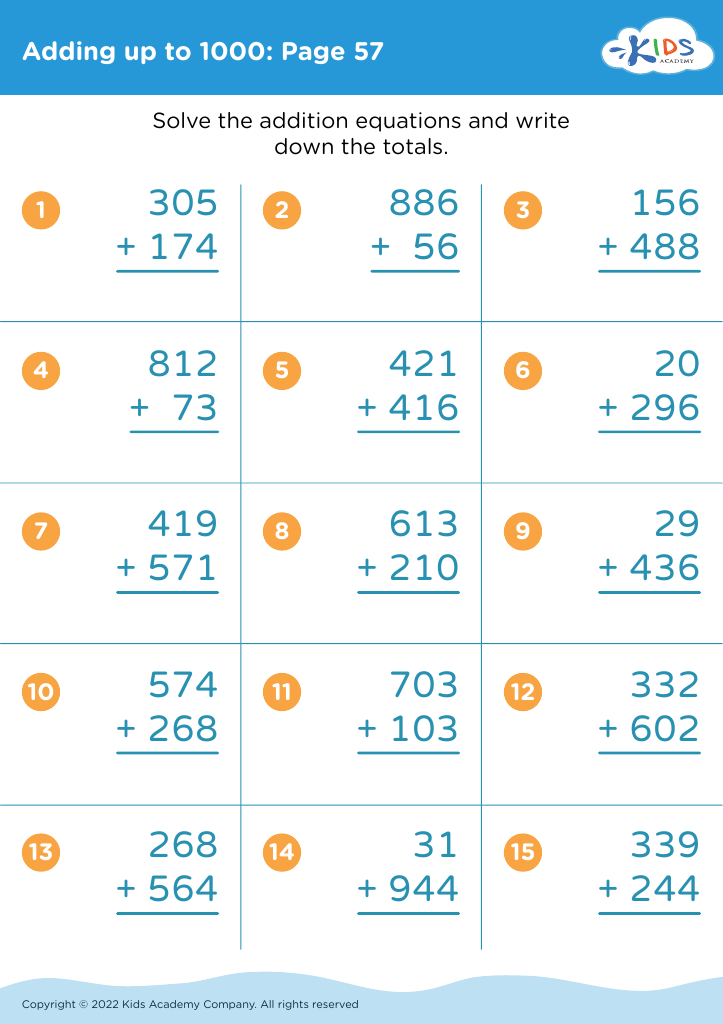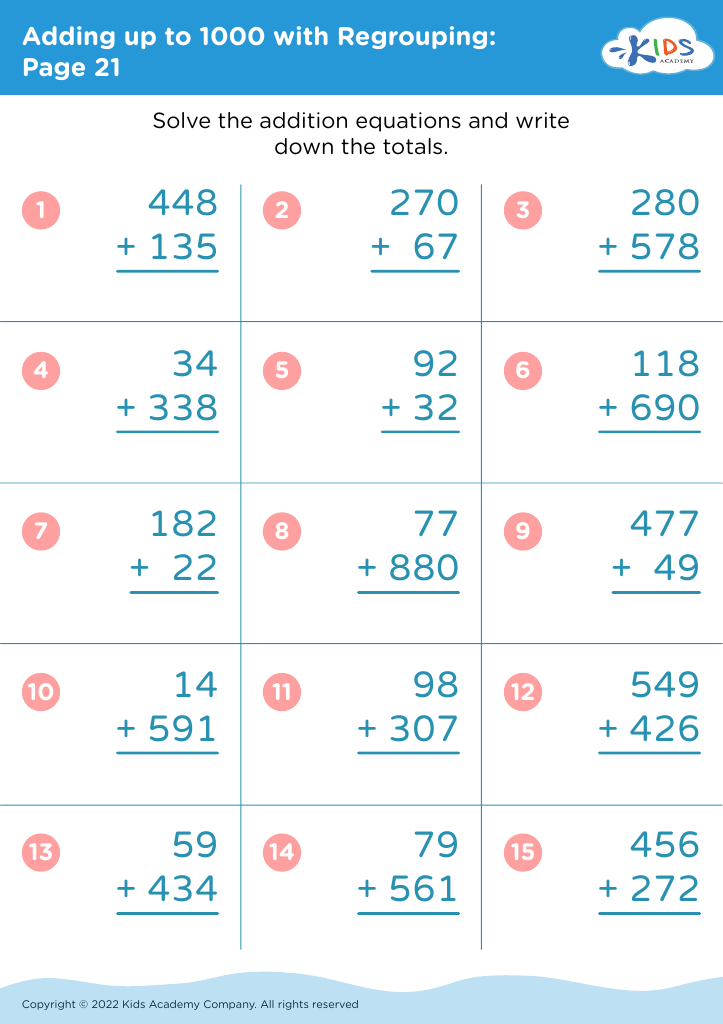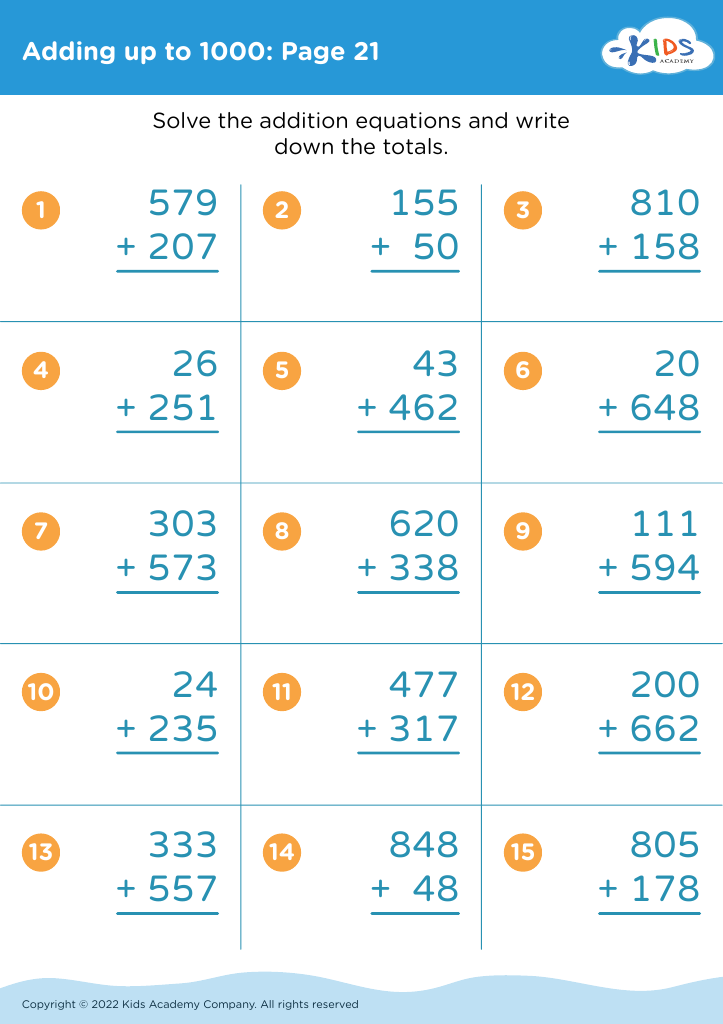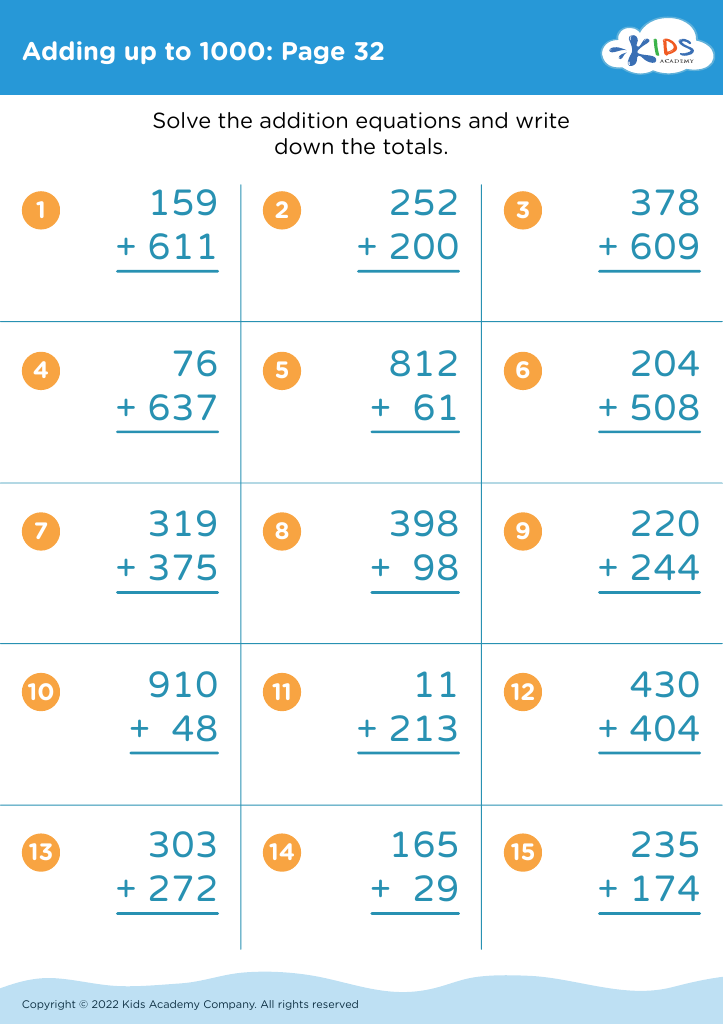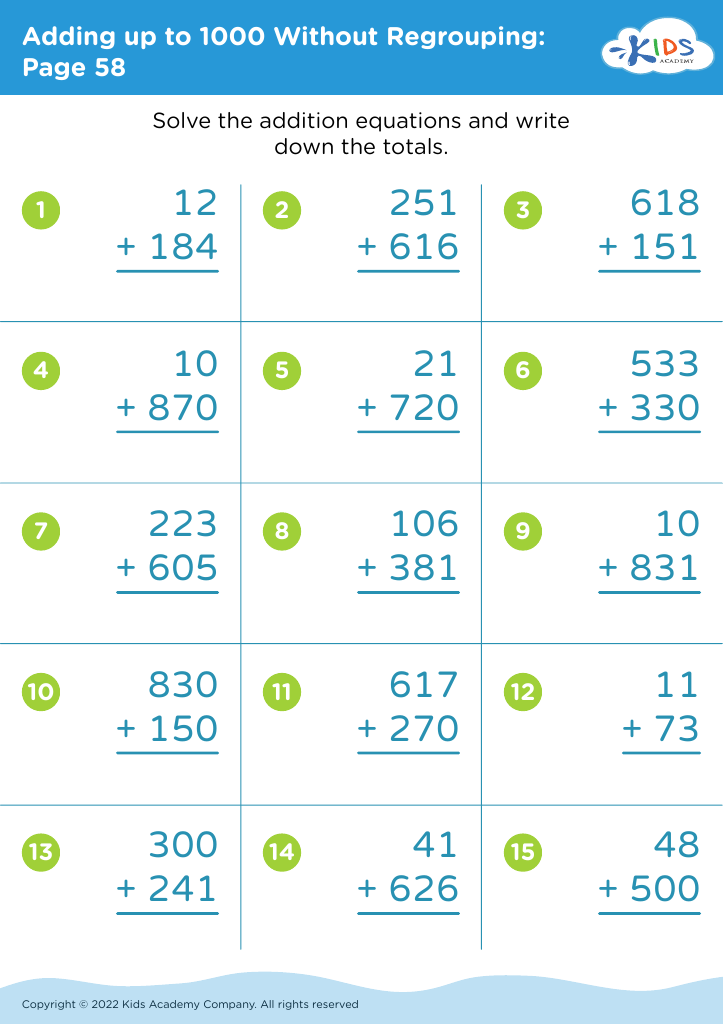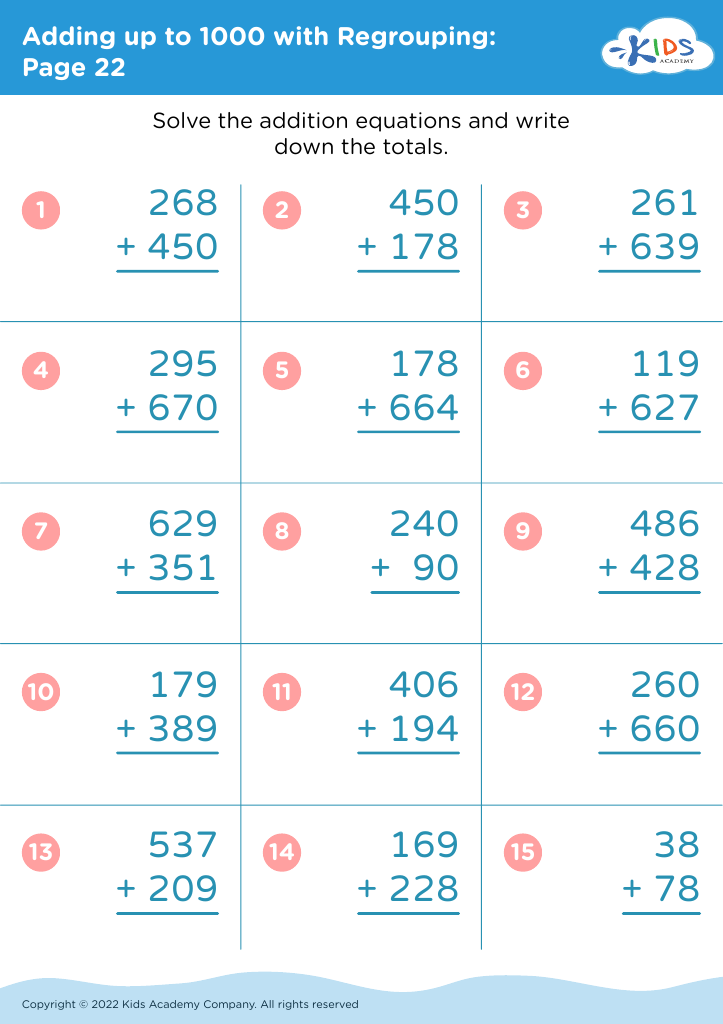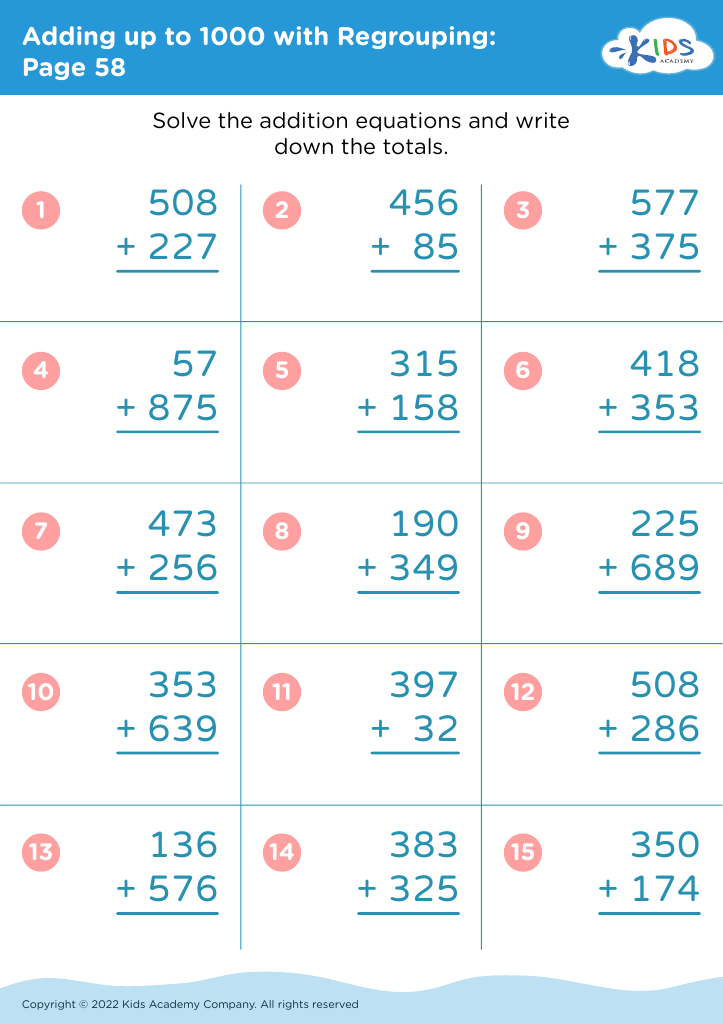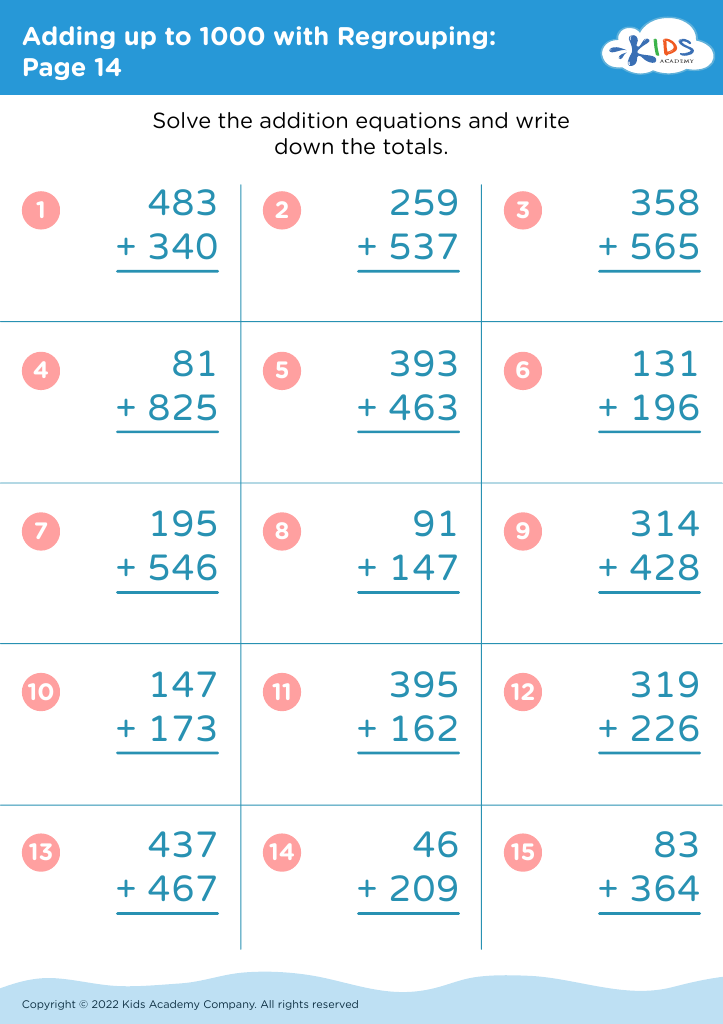Counting practice Adding up to 1000 Worksheets for Ages 4-7
19 filtered results
-
From - To
Welcome to our Counting Practice Adding Up to 1000 worksheets, specially designed for children aged 4-7! These engaging and interactive resources help young learners develop essential counting and addition skills while keeping them entertained. With a variety of colorful activities, your child will practice counting, recognizing numbers, and solving addition problems up to 1000. Our worksheets make learning fun, building confidence in their mathematical abilities. Perfect for homeschooling, classroom use, or supplemental learning, these resources provide a strong foundation in math concepts. Help your child cultivate a love for numbers and master counting with our easy-to-use worksheets today!
Counting practice and adding up to 1000 are crucial skills for children aged 4-7, as they form the foundation for future mathematical understanding. During this developmental stage, children learn to recognize patterns, understand quantities, and grasp the concept of numbers in relation to one another. Mastering counting and basic addition enhances their cognitive skills, promoting critical thinking and problem-solving abilities.
Furthermore, engaging in counting encourages children to develop a positive attitude towards math, alleviating anxiety that often emerges later in life. This joyful interaction with numbers not only supports their self-confidence but also instills a love for learning.
From a practical viewpoint, proficiency in counting and addition prepares students for more complex math concepts they will encounter in school, including subtraction, multiplication, and division. These foundational skills also teach them valuable life skills, such as budgeting and time management, that will benefit them beyond the classroom.
Involving parents in counting exercises deepens the child's learning experience, promoting parent-child bonding while reinforcing these essential skills. By investing time in counting practice, parents and teachers provide children with the strong mathematical foundation needed for a successful educational journey.
